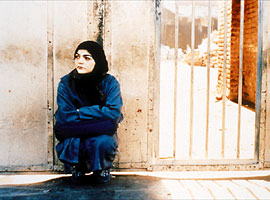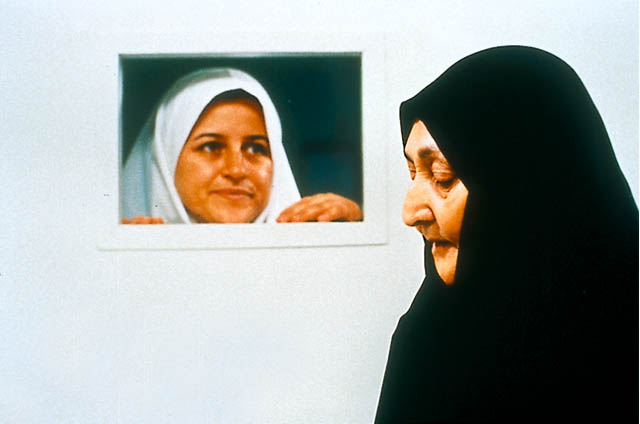The Circle
(Dayereh)


The material in Jafar Panahi's The Circle was so inflammatory that Iran banned it. It is now showing in American cinemas, and spotlights the plight of Iranian women. The Circle is similar to another recent Iranian movie, The Day I Became a Woman, but is much bleaker. Panahi (The Mirror, The White Balloon) wants to show how unfair the treatment of women is, and it is hard to imagine how things can get worse for the women in the movie. In the opening scene, a baby is born. The baby is female, which causes great distress for the grandmother. Everybody expected a boy from the ultrasound; nobody wants a girl.
Just as quickly as this settles in, Panahi moves away from this story and onto another. The Circle, written by Panahi and Kambuzia Partovi (The Unfinished Song) never stays long on one story. It shifts to various women, each story highlighting a different aspect of the suffering and hardships of women in Iran. Panahi's decision to fragment the narrative into so many components has opposite effects, and sometimes it is hard deciding which one wins out. On one hand, there is not enough time to truly connect and empathize with the characters. As soon as a story begins, it seems to end. However, Panahi manages to put all these situations into a larger context. The multiple points of views provide for a fuller understanding of the situation of these women.
The women in The Circle are not the stereotypical women in movies. They are prostitutes, mothers who abandon their children, and women just out of jail. The decisions they make defy any normal convention, and sometimes just defy plain logic and common sense. Panahi wants to show that no matter what the station, women are treated badly. Men heckle and jeer at them when they walk down the street. They cannot buy a bus ticket without a man accompanying them on the bus. Simple liberties that women in other countries take for granted are not available to these women. It is a powerful statement, and Panahi offers no answers to the problem.